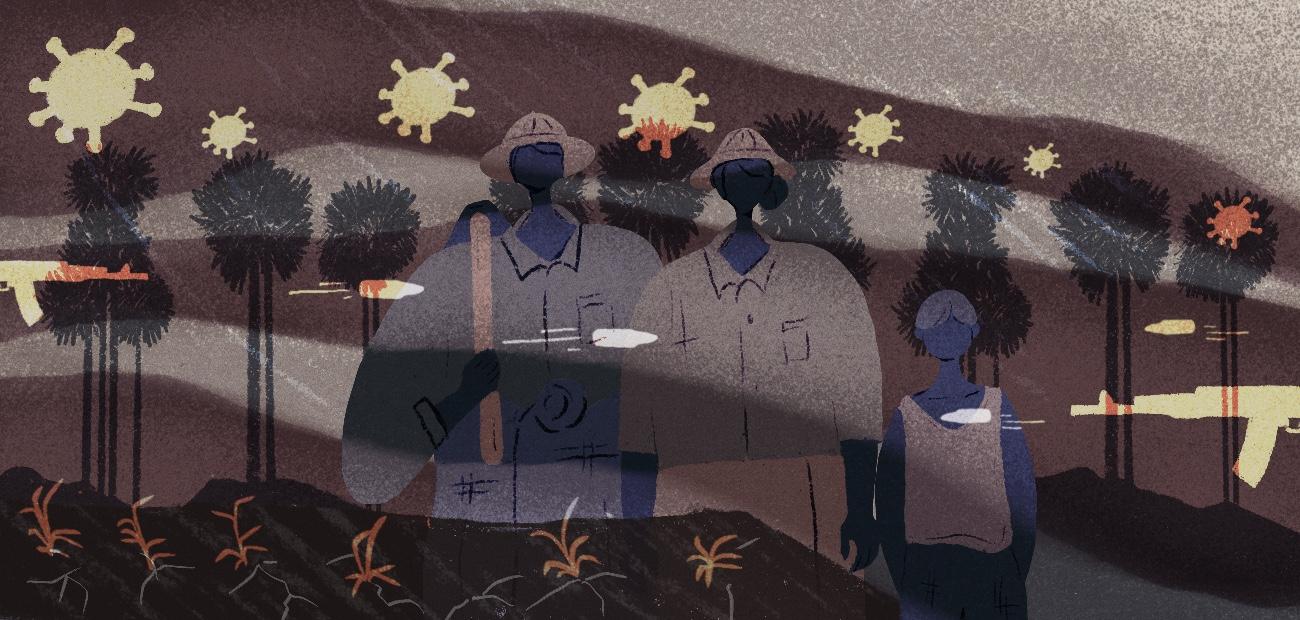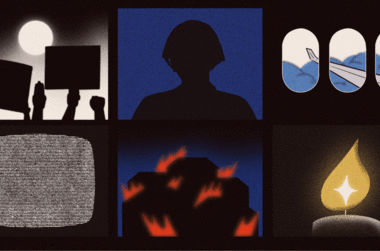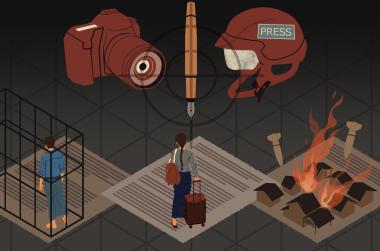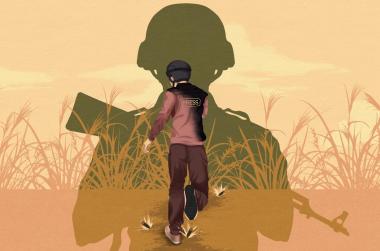This 25-year-old’s family have farmed in the Dry Zone in Myanmar’s central region for over two decades. Few people are able to access the internet now in her area, so most people are just listening to the government radio broadcasts for a semblance of information. And while the local community is worried about violence and war breaking out, their primary concerns are health and incomes.
The coup and COVID-19 have really affected farmers.
In our area, in the dry zone, we are still using labour, everything is done by hand. We planted monsoon rice this year, in the same manner as previous years. But a lot of people fell ill. I don’t know if it was COVID or not but people kept saying they had the flu. So a lot of farm labourers - mainly women who plant rice saplings - were unwell. It was quite difficult to hire people. That’s different from last year. It meant we could not finish planting on time.
There are six of us in the family and we grow rice, maize, cotton and chili peppers. We are still working so we are doing ok so far. I don’t think people will reduce rice consumption but I think they will reduce consumption of more nutritious foods.
Things are tighter these days. Input prices are high, the harvest isn’t certain, and then you get a bad price - so it’s tough. There are a lot more checkpoints and restrictions these days too, which make it difficult to do business, whether it’s to go and buy fertiliser in the market in the nearby city or to sell your crops or livestock. There isn’t a market for these things anymore. People need money but they end up not selling things because they can’t get a good price.
Our area is under lockdown and we can no longer go into the cities and buy things with ease like we used to. The villages are also quite far from the main road. Because things are shut and blocked and all that, sometimes we have to ask others to buy things for us. Prices have also shot up dramatically - like fertiliser used to be 35,000 kyats but now apparently it's 59,000 kyats.
We have noticed climate change. What’s happening these days is that in the Dry Zone where we need water we have droughts and less rainfall, but in other areas where you actually don’t need water like in the Delta, there have been floods and they were quite bad, they damaged the infrastructure. The weather has become quite extreme. It affects people’s ability to feed themselves.
The main issue is that in our area, while we do get income from planting rice, people only sell it if they have a surplus. The real cash crops are cotton and chilli. But people haven’t been able to focus on that - they were worried about their own food security so they have prioritised rice and only grew cotton if there was water. Last year, because there was very little rain, we tried to irrigate but the dam had no water, so we could not grow cotton.
Normally people use the income from selling summer cotton as capital for monsoon paddy. But without the cotton income they also didn’t have enough capital for monsoon paddy.
People are worried about their finances because of the combination of political uncertainty and climate problems, but in my opinion people are more worried about health and other things like that than yields.
My biggest concern is for farmers’ health. We keep hearing about a lot of people dying from COVID-19 and things were really bad in big cities like Yangon and Mandalay a while ago.
COVID-19 has been slower in rural areas but now a lot of villages are seeing people getting sick. Some of the illnesses in our area sound very similar to COVID-19, like people losing their sense of smell. But people don’t think it’s COVID-19. At the moment it’s mainly people falling ill and recovering after a few days. I haven’t heard of deaths.
In Yangon and Mandalay people could still go and buy oxygen if their levels drop. There are doctors. They at least have some knowledge about the illness and how to get help. We are far from clinics and hospitals and people don’t even know they need oxygen or how to measure their oxygen levels. If they had more awareness, I think we could avoid more deaths.
Illustration by JC





